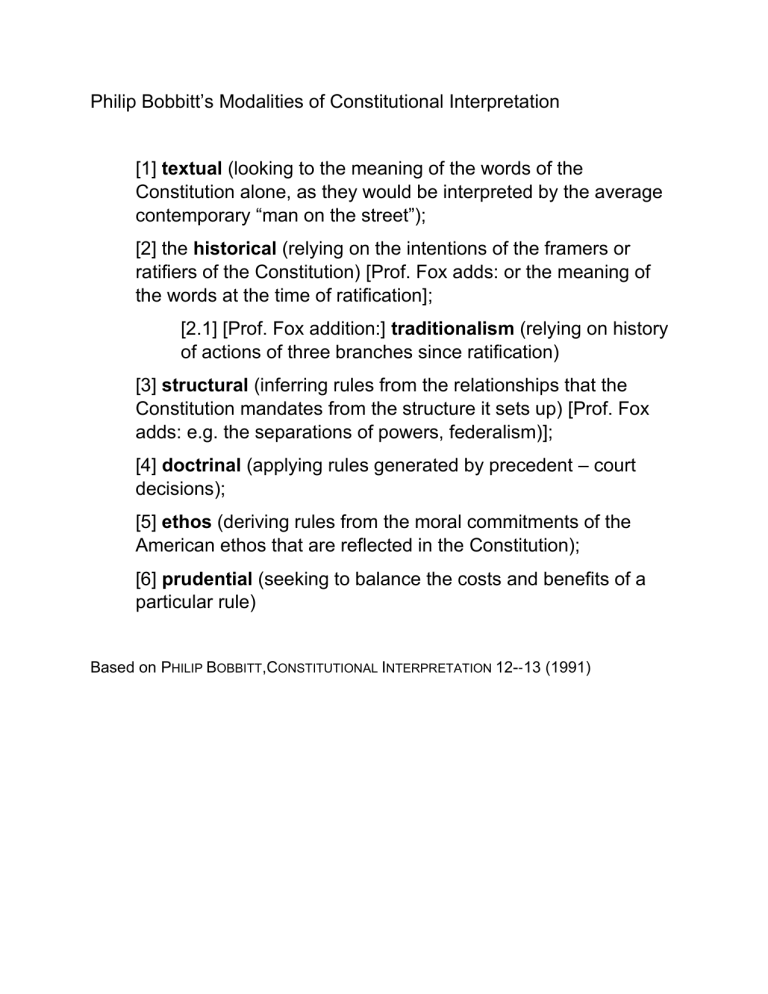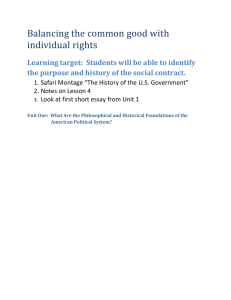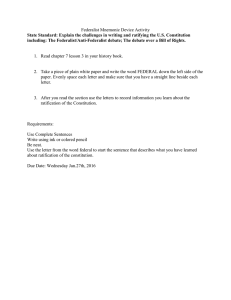
Philip Bobbitt’s Modalities of Constitutional Interpretation [1] textual (looking to the meaning of the words of the Constitution alone, as they would be interpreted by the average contemporary “man on the street”); [2] the historical (relying on the intentions of the framers or ratifiers of the Constitution) [Prof. Fox adds: or the meaning of the words at the time of ratification]; [2.1] [Prof. Fox addition:] traditionalism (relying on history of actions of three branches since ratification) [3] structural (inferring rules from the relationships that the Constitution mandates from the structure it sets up) [Prof. Fox adds: e.g. the separations of powers, federalism)]; [4] doctrinal (applying rules generated by precedent – court decisions); [5] ethos (deriving rules from the moral commitments of the American ethos that are reflected in the Constitution); [6] prudential (seeking to balance the costs and benefits of a particular rule) Based on PHILIP BOBBITT,CONSTITUTIONAL INTERPRETATION 12-‐13 (1991)








